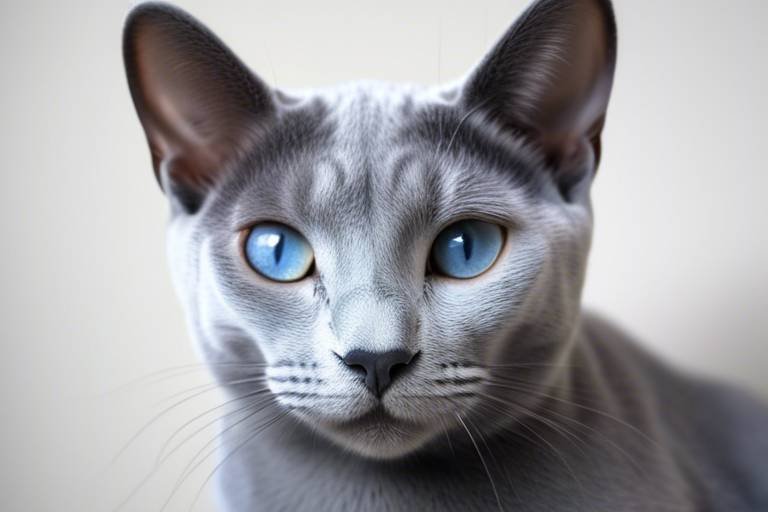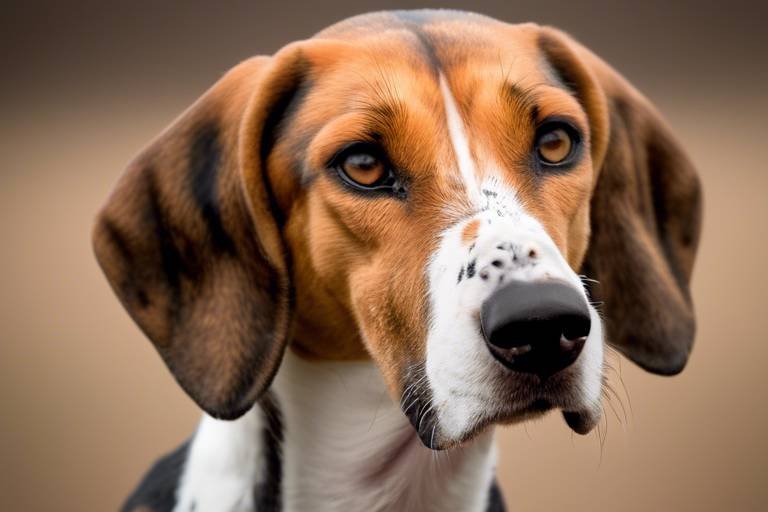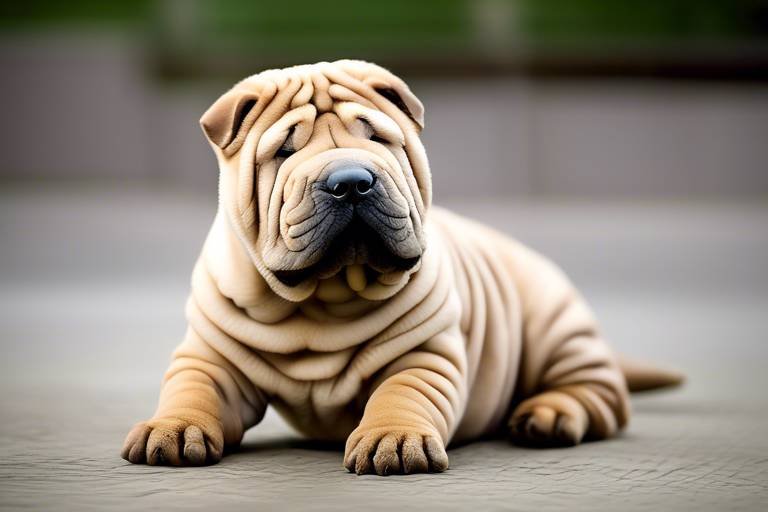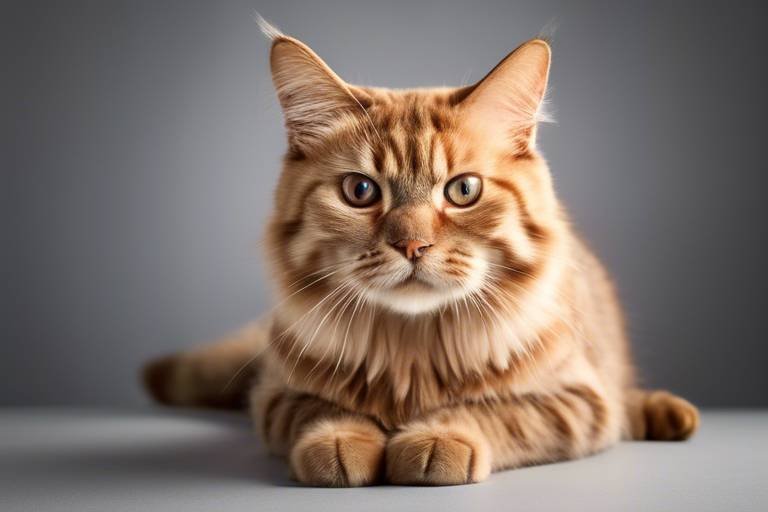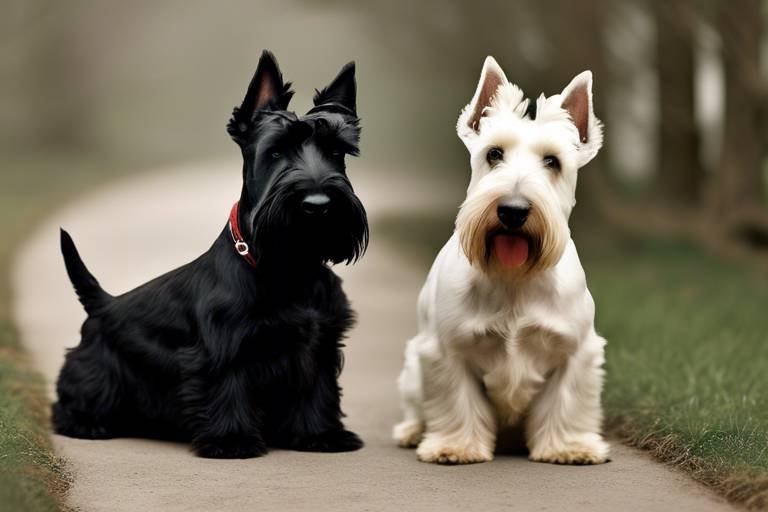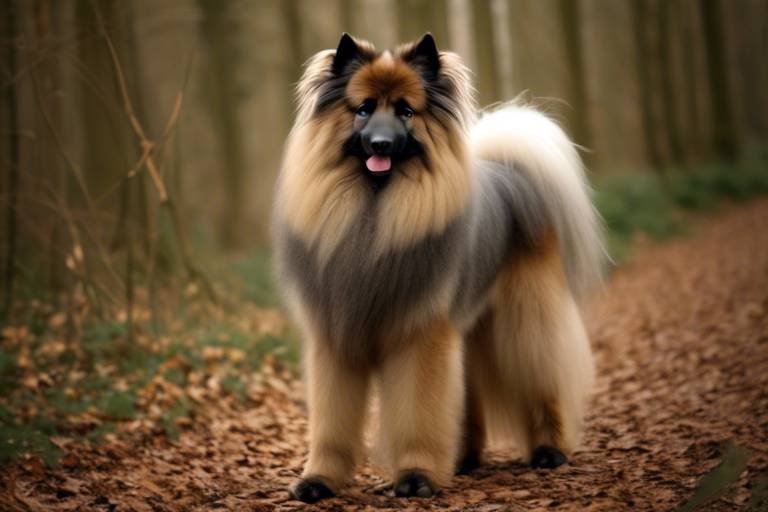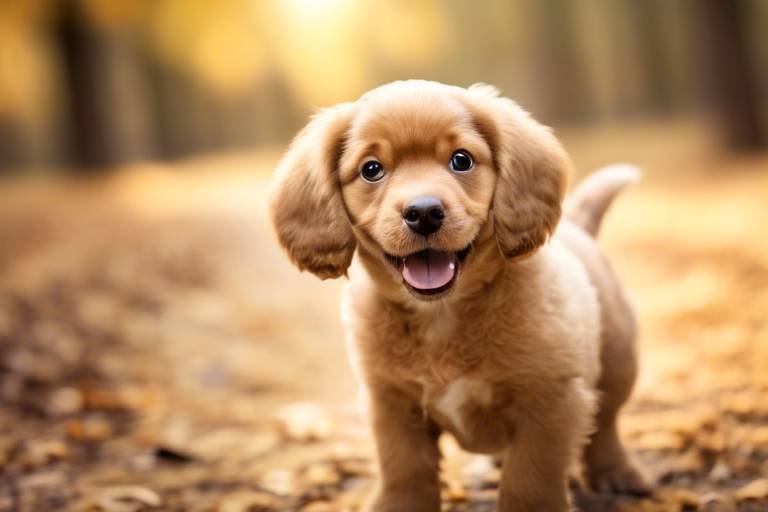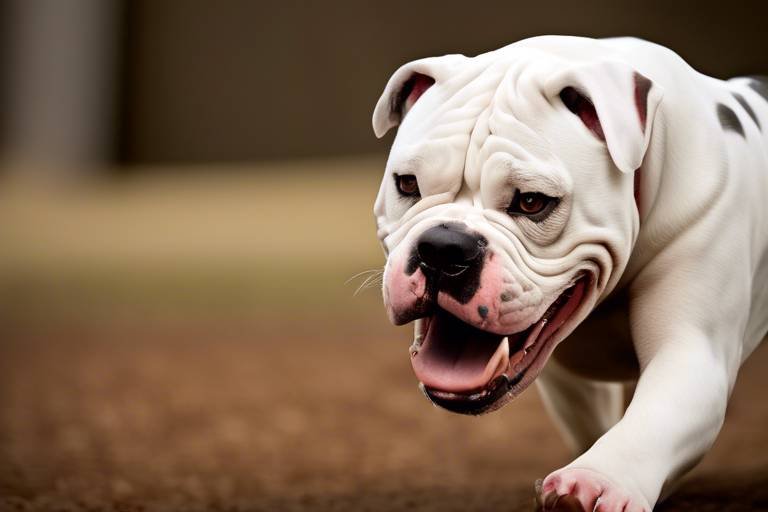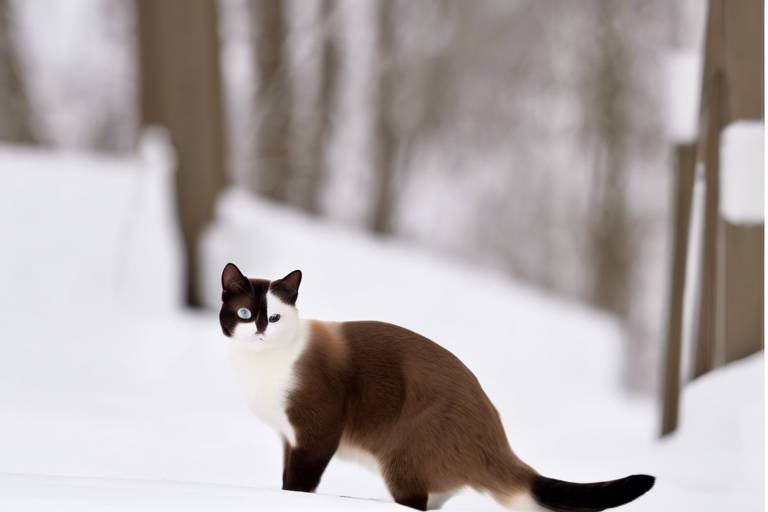Why Chihuahuas Are More Than Just Tiny Dogs
When you think of a Chihuahua, the first image that might pop into your head is that of a tiny, yappy dog that fits snugly in a handbag. But hold on! There’s so much more to these little furballs than meets the eye! Chihuahuas are not just small; they are bold, spirited, and full of personality. These pint-sized pooches have a rich history, vibrant traits, and an unwavering loyalty that can melt even the coldest of hearts. In this article, we will explore why Chihuahuas deserve a spot in the limelight and why owning one might just be one of the best decisions you ever make.
First off, let’s talk about their unique characteristics. Did you know that Chihuahuas are one of the oldest dog breeds in North America? They trace their lineage back to the ancient civilizations of Mexico, particularly the Toltecs and Aztecs, who revered these dogs as sacred. This historical significance adds a layer of depth to their personality, making them not just pets but also companions with a story to tell. It's like having a little piece of history right in your home!
Now, let’s dive into their personality traits. Chihuahuas are known for their confidence, often strutting around like they own the place. It’s not unusual to see a Chihuahua barking at a larger dog, showcasing their fearless nature. This attitude, combined with their loyalty, makes them fantastic companions. They form strong bonds with their owners and often become fiercely protective. Imagine having a tiny guard dog that’s always ready to alert you of any potential danger, no matter how big or small!
But it’s not all about bravado. Chihuahuas are also incredibly playful and affectionate. They thrive on interaction and love to cuddle, making them perfect lap dogs. Their playful antics can bring endless joy to your life, and their quirky personalities can turn even the dullest day into a fun adventure. It’s like having a little comedian in your home, always ready to make you laugh!
In addition to their charming personalities, Chihuahuas offer various advantages as pets. For one, their small size makes them ideal for apartment living. They require less space to roam, which means you don’t need a sprawling yard to keep them happy. Plus, their low exercise needs mean that a few short walks and some playtime indoors can suffice. It’s a win-win situation for busy urban dwellers!
However, owning a Chihuahua isn’t just about the fun and games; it comes with responsibilities. Understanding their socialization needs is crucial for raising a well-adjusted dog. Chihuahuas can sometimes be wary of strangers or other pets, so early socialization is key. By exposing them to various environments, people, and animals, you can help them develop into confident and friendly companions.
In conclusion, Chihuahuas are more than just tiny dogs; they are dynamic, loving, and complex creatures that bring joy and companionship to many lives. Their rich history, vibrant personalities, and advantages as pets make them deserving of recognition and love. So, the next time you see a Chihuahua, remember that there’s a lot more to them than their size. They might just surprise you!
Here are some common questions about Chihuahuas that might help you understand these adorable pups even better:
- Are Chihuahuas good with children? Yes, Chihuahuas can be good with children if they are socialized properly from a young age. However, supervision is important as they are small and can be easily injured.
- Do Chihuahuas shed a lot? Chihuahuas do shed, but the amount varies between individuals. Regular brushing can help manage shedding.
- What is the average lifespan of a Chihuahua? Chihuahuas typically live between 12 to 20 years, making them one of the longer-living dog breeds.
- Are Chihuahuas easy to train? While they can be stubborn, Chihuahuas respond well to positive reinforcement and consistent training.
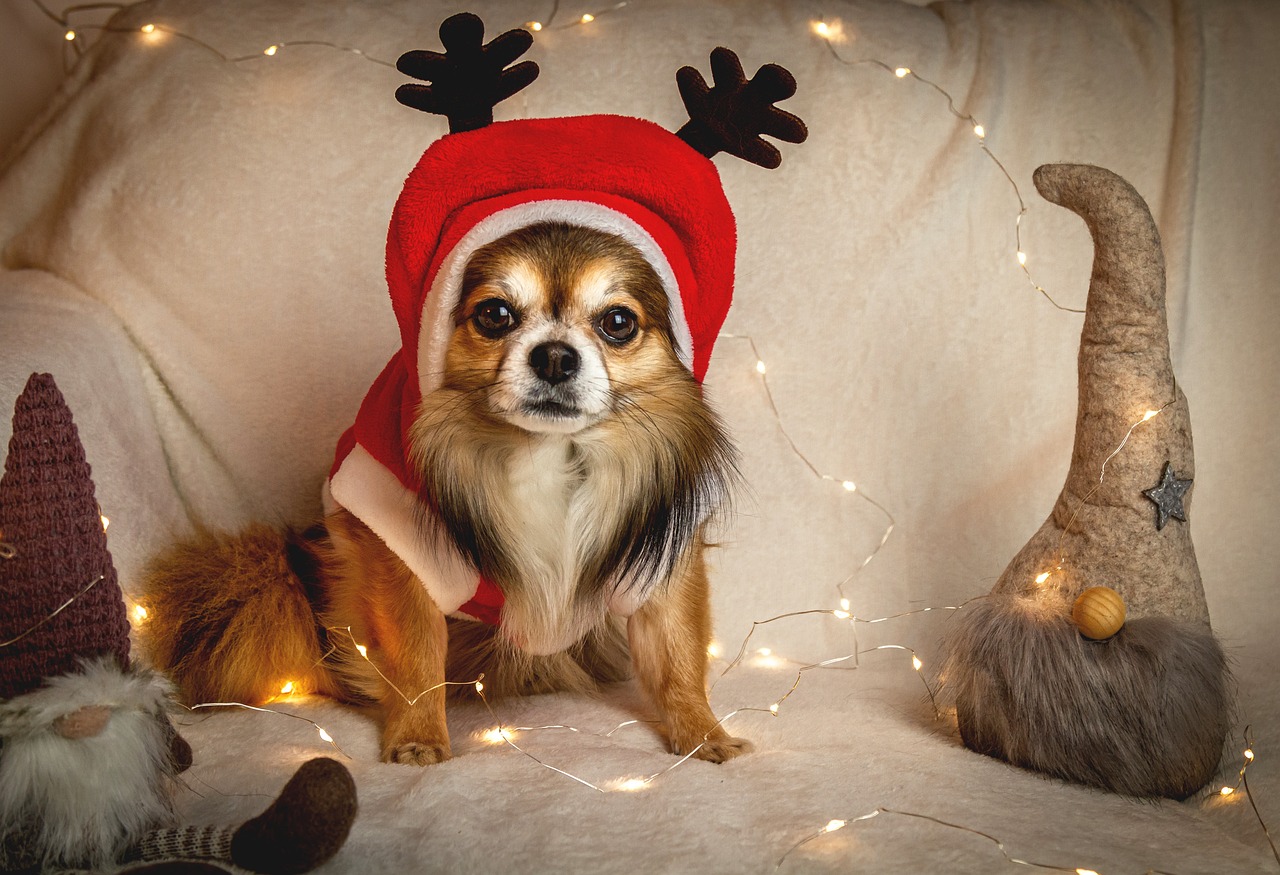
The History of Chihuahuas
The history of Chihuahuas is as rich and vibrant as their personalities. These small yet feisty dogs trace their lineage back to ancient civilizations, specifically the Toltecs and the Aztecs, who revered them as sacred companions. It's fascinating to think that the little dog curled up on your lap today may have once been a cherished member of an ancient society, believed to guide souls to the afterlife. Can you imagine that?
The Chihuahua's ancestors, known as the Techichi, were larger than the modern breed and served not only as companions but also as protectors and healers. They were often depicted in ancient art, showcasing their significance in the lives of the people who bred them. As time went on, these dogs were brought to the United States by Mexican immigrants, where their popularity soared. The name "Chihuahua" comes from the Mexican state of the same name, where the breed was first recognized in the late 19th century.
As the breed evolved, certain traits became more pronounced, leading to the tiny, spirited Chihuahuas we know today. Their small size, typically weighing between 2 to 6 pounds, and their big personalities made them ideal companions for city dwellers. In fact, their compact stature allows them to adapt easily to apartment living, making them a favorite among urban pet owners.
Throughout the years, Chihuahuas have gained fame not just as pets but as cultural icons. They have graced the silver screen in films such as Legally Blonde and have been featured in various commercials, showcasing their charming and sassy demeanor. With their rise to stardom, Chihuahuas have become symbols of fashion and luxury, often seen in the arms of celebrities. However, beneath the glitz and glamour lies a dog with a rich history and a personality that demands respect.
To sum it up, the history of Chihuahuas is a fascinating journey that reflects their evolution from ancient companions to modern-day celebrities. Their unique traits and cultural significance make them more than just tiny dogs; they are a living connection to our past, a testament to the bond between humans and canines. These little pups deserve recognition not only for their size but for their incredible history and the joy they bring into our lives.
- What is the origin of the Chihuahua breed?
The Chihuahua breed originated from ancient civilizations in Mexico, specifically the Toltecs and Aztecs. - How did Chihuahuas get their name?
They are named after the Mexican state of Chihuahua, where they were first recognized in the late 19th century. - Are Chihuahuas good pets?
Yes! They are known for their loyalty, playfulness, and adaptability, making them great companions for many households.
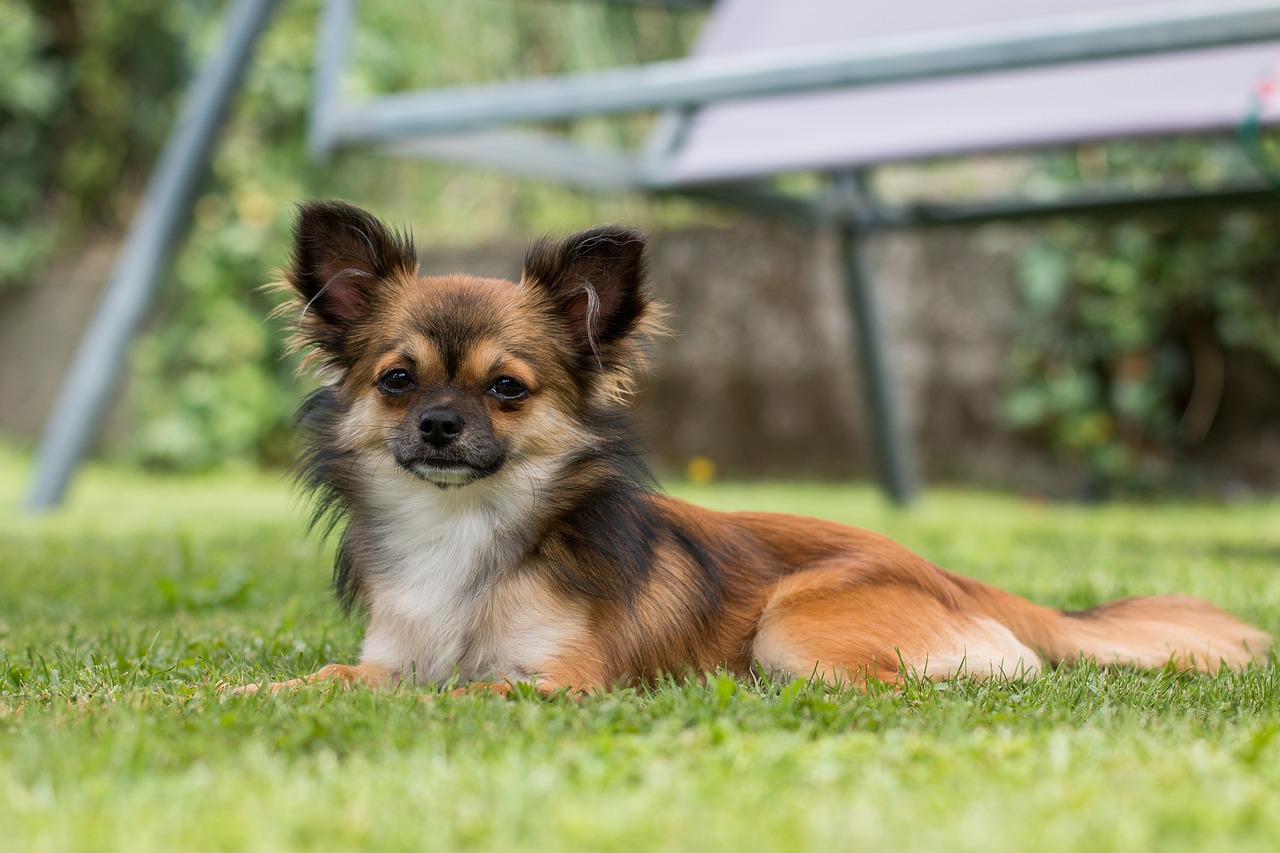
Personality Traits of Chihuahuas
Chihuahuas are often underestimated due to their small size, but let me tell you, these little furballs pack a punch when it comes to personality! They are like tiny dynamites, bursting with energy, confidence, and a whole lot of love. Their vibrant personalities can charm even the most stoic of hearts. One moment they might be snuggled up in your lap, and the next, they’re running around like they just downed a double espresso! It’s this mix of playfulness and loyalty that makes them such delightful companions.
These little dogs have a reputation for being feisty, and it’s not just for show. Chihuahuas are known for their boldness, often thinking they are much larger than they actually are. Imagine a tiny dog barking fiercely at a much larger dog—it’s both hilarious and admirable! Their confidence is contagious, making them seem like they own the room wherever they go. This trait can sometimes lead to a bit of stubbornness, but with the right approach, it can be channeled into positive behavior.
Chihuahuas are also incredibly affectionate. They thrive on human interaction and often form strong bonds with their owners. If you’re looking for a cuddle buddy, you’ve found your match! Their love can be overwhelming, and they often express it by following their owners from room to room, ensuring they’re never too far away. It’s like having your own little shadow, always eager to be part of your day.
However, it’s important to understand that Chihuahuas are not just lap dogs; they have their own unique needs and quirks. Here’s a quick overview of some of their most notable personality traits:
- Protective Nature: Chihuahuas can be fiercely protective of their owners and territory, often barking to alert you of any perceived threats.
- Intelligence: They are sharp little cookies, often picking up commands and tricks quickly, especially when motivated by treats.
- Social Butterfly or Wallflower: Depending on their socialization, they can either be outgoing and friendly or shy and reserved around strangers.
Understanding these traits is essential for any prospective Chihuahua owner. Their socialization needs are particularly important, as a well-socialized Chihuahua is a happy Chihuahua. Early exposure to different people, environments, and other animals can help them develop into well-rounded pets. So, if you’re considering adding a Chihuahua to your family, be prepared for a little bundle of joy that will keep you on your toes!
Q: Are Chihuahuas good with kids?
A: Yes, Chihuahuas can be great with kids, but it’s essential to supervise interactions, as they are small and can be easily injured. Teaching children to be gentle and respectful is crucial.
Q: Do Chihuahuas bark a lot?
A: Chihuahuas are known for their vocal nature. They may bark to alert you of strangers or when they want attention, so training them to control their barking is important.
Q: How much exercise do Chihuahuas need?
A: Despite their small size, Chihuahuas need regular exercise to stay healthy and happy. Short walks and playtime are usually sufficient to meet their needs.
Socialization Needs
When it comes to Chihuahuas, socialization is not just a luxury—it's a necessity! These little bundles of energy thrive on interaction, and their social skills can significantly influence their overall behavior. Imagine a Chihuahua as a tiny ambassador of joy, eager to meet friends and explore the world around them. However, without proper socialization, they might become anxious or overly protective, which can lead to behavioral issues. So, how do we ensure our pint-sized pals are well-adjusted and happy?
First off, starting early is key. The critical period for socialization occurs between 3 and 14 weeks of age. During this time, exposing your Chihuahua to various environments, people, and other animals can set the foundation for a confident adult dog. This doesn't mean throwing them into chaotic situations; instead, think of it as gently introducing them to the world in a controlled manner. Gradually expose them to new experiences, such as:
- Different sounds (like traffic, music, or other dogs barking)
- Various types of people (children, elderly, men, women)
- Other pets, ensuring they feel safe and secure
It's essential to create positive associations during these encounters. For instance, if your Chihuahua meets a friendly dog and enjoys the interaction, reward them with treats or praise. This reinforces that socializing is a good thing! Remember, patience is vital. Some Chihuahuas might be more timid than others, and pushing them too hard can lead to fear rather than confidence.
Moreover, regular outings can help maintain their social skills. Whether it's a trip to the park, a pet-friendly café, or simply a walk around the neighborhood, these experiences allow them to meet new people and other dogs, keeping their social skills sharp. Think of it as a little adventure each time—who knows what new friends they might make?
In addition to exposure, consider enrolling your Chihuahua in puppy classes. These classes provide a structured environment for socialization while also teaching basic obedience. It's like going to school for your dog, where they can learn the ropes and make furry friends along the way. Just like humans, dogs benefit from learning in a social setting, and it can significantly improve their confidence.
Lastly, it's crucial to monitor their behavior during socialization. If your Chihuahua shows signs of fear or aggression, take a step back. It's better to go slow than to overwhelm them. Keep in mind that every dog is unique, and what works for one may not work for another. Be their advocate, and always prioritize their comfort and safety.
In conclusion, socialization is a vital part of raising a well-adjusted Chihuahua. By introducing them to new experiences, rewarding positive interactions, and being patient, you can help your furry friend grow into a confident and happy companion. After all, a well-socialized Chihuahua is not just a joy to have at home; they become the life of the party wherever they go!
Positive Reinforcement Techniques
When it comes to training your Chihuahua, positive reinforcement is a game-changer. This method is all about rewarding your furry friend for good behavior rather than punishing them for mistakes. Imagine teaching your Chihuahua to sit, and instead of getting frustrated when they don’t get it right away, you shower them with praise and a treat when they do! This not only builds a strong bond between you and your pet but also creates a more enjoyable learning environment.
Using positive reinforcement can turn training sessions into fun activities for both you and your Chihuahua. Here are a few techniques that can help:
- Timing is Everything: Make sure to reward your Chihuahua immediately after they perform the desired behavior. This helps them connect the dots between the action and the reward.
- Be Consistent: Use the same commands and rewards consistently. This helps your dog understand what you expect from them.
- Vary the Rewards: While treats are fantastic, don't forget to mix things up. Sometimes, a favorite toy or a good belly rub can be just as rewarding!
Incorporating these techniques into your training routine can yield fantastic results. For instance, if your Chihuahua successfully follows a command, you might say, "Good girl!" while giving her a small treat. This double reinforcement—verbal praise and a tangible reward—will encourage her to repeat the behavior. Moreover, it’s crucial to keep training sessions short and engaging. Chihuahuas, like most dogs, have short attention spans, so aim for around 5 to 10 minutes per session to keep them focused and eager to learn.
Another essential aspect of positive reinforcement is understanding your Chihuahua's unique personality. Some Chihuahuas may respond better to verbal praise, while others might be more motivated by treats. Pay attention to what excites your dog the most and tailor your training approach accordingly. This personalized touch can make a world of difference in their learning experience.
Lastly, remember that patience is key. Training a Chihuahua can sometimes feel like a roller coaster ride—full of ups and downs. However, with consistent positive reinforcement, you’ll be amazed at how quickly they pick up new tricks and commands. So, grab those treats, get ready to shower your pup with love, and watch as they blossom into a well-behaved companion!
Common Socialization Challenges
When it comes to socializing Chihuahuas, it's essential to recognize that their small stature often leads to unique challenges. These little dogs may seem fearless, but they can be surprisingly sensitive to their environment. One common issue is their tendency to become overly protective of their owners. This can manifest as barking or aggression towards strangers or other pets. Imagine a tiny dog trying to act like a mighty lion; it’s both amusing and concerning!
Another challenge is their natural instinct to be wary of unfamiliar situations. Chihuahuas may react negatively to new experiences, whether it’s a loud noise or a bustling crowd. This behavior often stems from their strong bond with their owners, making them more likely to feel anxious when faced with the unknown. It’s crucial to help them build confidence through gradual exposure to different environments.
Socialization is not just about meeting new people or pets; it’s also about teaching your Chihuahua how to behave appropriately in various situations. For instance, if a Chihuahua isn’t properly introduced to other dogs, they might react with fear or aggression, leading to a cycle of negative interactions. To combat this, consider the following:
- Start socialization early: The earlier you begin exposing your Chihuahua to different people, pets, and environments, the better.
- Use positive reinforcement: Reward your Chihuahua for calm behavior in new situations to encourage them to remain relaxed.
- Be patient: Remember that every dog is different. Some Chihuahuas may take longer to adjust than others.
Additionally, Chihuahuas can exhibit signs of separation anxiety, which can hinder their socialization efforts. If they become overly attached to their owners, they might struggle when left alone or when meeting new people. To address this, owners should practice short separations and gradually increase the duration to help their Chihuahuas feel secure.
In summary, while Chihuahuas are known for their spunky and bold personalities, they can face significant socialization challenges. By understanding these issues and employing effective strategies, you can help your Chihuahua become a well-adjusted and confident companion. Remember, socialization is a journey, not a destination, and with time and patience, your Chihuahua can thrive in various environments.
Q: How early should I start socializing my Chihuahua?
A: It's best to start socializing your Chihuahua as early as possible, ideally during their critical socialization period, which is between 3 and 14 weeks of age.
Q: What are the signs that my Chihuahua is not well-socialized?
A: Signs may include excessive barking, fear or aggression towards strangers, reluctance to explore new environments, and difficulty interacting with other dogs.
Q: Can I socialize my adult Chihuahua?
A: Absolutely! While it may take more time and patience, adult Chihuahuas can still learn to socialize effectively with the right techniques.
Q: What should I do if my Chihuahua shows aggression towards other dogs?
A: It's crucial to seek professional help from a dog trainer or behaviorist to address aggression issues safely and effectively.
Health Considerations
When it comes to owning a Chihuahua, understanding their health considerations is crucial. These tiny pups may be small in stature, but they come with their own set of health quirks that every owner should be aware of. Just like a delicate piece of art, Chihuahuas require careful handling and attention to thrive. Their unique physiology can make them susceptible to certain health issues, so being informed is the first step in ensuring your furry friend lives a long, happy life.
One of the most notable health concerns for Chihuahuas is their tendency to develop dental problems. Due to their small mouths, overcrowding of teeth can lead to periodontal disease if not addressed. Regular dental check-ups and at-home care, such as brushing their teeth or providing dental chews, can help maintain their oral health. Remember, a healthy mouth can lead to a healthier pup overall!
Another common issue is patellar luxation, a condition where the kneecap dislocates from its normal position. This can cause pain and mobility issues, making it essential for Chihuahua owners to monitor their pets for signs of discomfort. If your pup seems to be limping or favoring a leg, a visit to the vet is in order. Early diagnosis can make a significant difference in treatment outcomes.
Chihuahuas are also prone to heart issues, particularly heart murmurs and congestive heart failure. Regular veterinary check-ups can help catch these problems early. Keeping your Chihuahua at a healthy weight is essential, as obesity can exacerbate heart conditions. A balanced diet and regular exercise are key to maintaining their health. Think of it as keeping a tiny engine running smoothly; the right fuel and maintenance can prevent breakdowns!
Lastly, Chihuahuas are sensitive to temperature extremes. Their small size means they can easily become cold in winter or overheated in summer. Owners should provide appropriate clothing in colder months and ensure their pets have access to shade and water during hot days. Just like a delicate flower, they need the right environment to flourish!
In summary, being aware of these health considerations can help you provide the best care for your Chihuahua. Regular vet visits, proper dental care, weight management, and attention to their environment are all essential aspects of keeping your tiny companion healthy and happy. Remember, a well-cared-for Chihuahua is a joyful Chihuahua!
- What are the most common health issues in Chihuahuas?
Chihuahuas commonly face dental problems, patellar luxation, and heart conditions. - How can I maintain my Chihuahua's dental health?
Regular dental check-ups, brushing their teeth, and providing dental chews can help. - Are Chihuahuas sensitive to temperature?
Yes, they are sensitive to both cold and heat, so appropriate care is necessary. - How often should I take my Chihuahua to the vet?
Regular check-ups at least once a year are recommended, with more frequent visits if health issues arise.
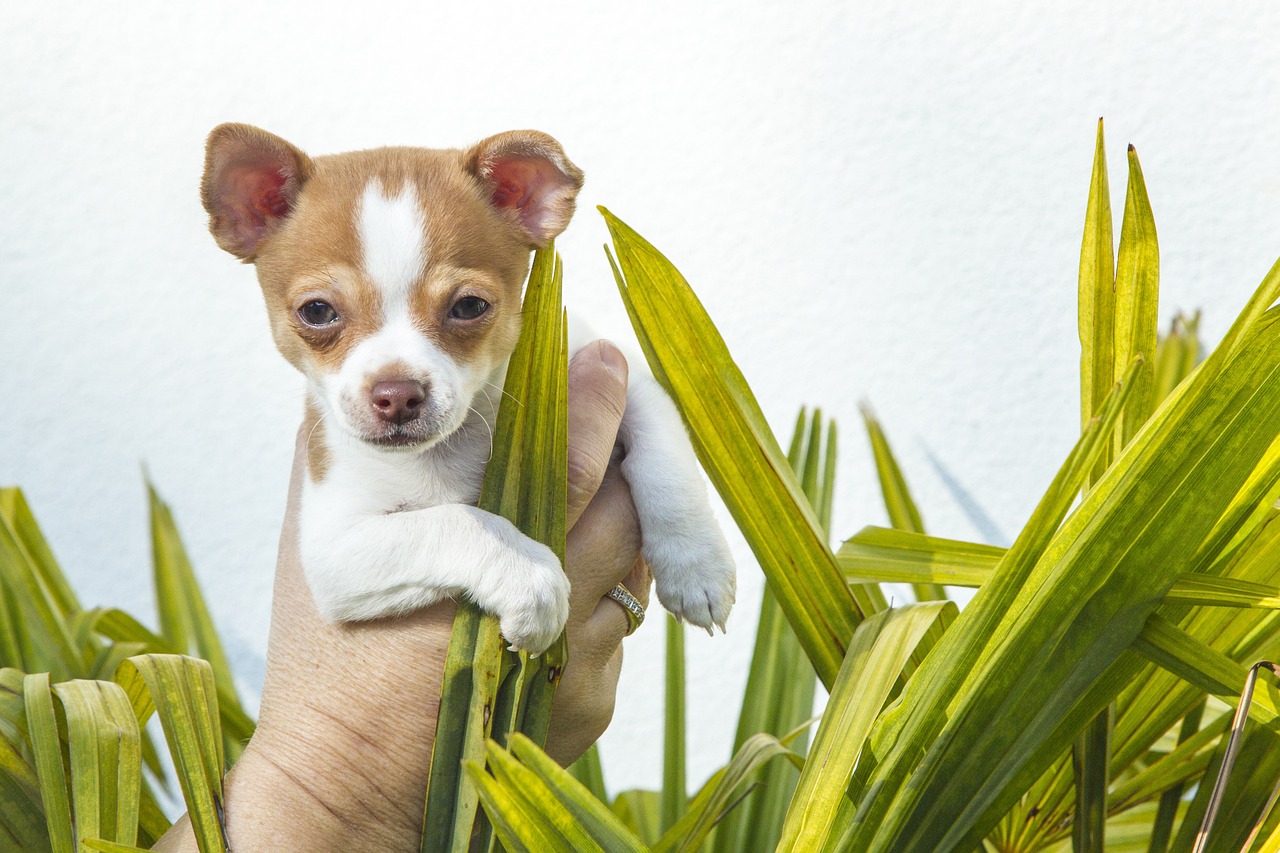
Training Your Chihuahua
Training a Chihuahua can be both a delightful and demanding experience. These little dogs, often underestimated due to their size, possess a strong will and a vibrant personality that can both charm and challenge their owners. It’s essential to approach their training with patience and creativity, as Chihuahuas can be quite spirited. Think of training as a dance; you lead, but your partner—your Chihuahua—has to be willing to follow. The more you understand your furry friend, the smoother your steps will be.
To begin with, it’s crucial to establish a consistent routine. Chihuahuas thrive on predictability, and having a set schedule for training sessions can help them feel secure and focused. Short, frequent training sessions tend to work best. Aim for 5 to 10 minutes per session, a few times a day. This way, your pup won’t get bored or overwhelmed, and you’ll both enjoy the process. Remember, every little victory counts, so celebrate those small achievements!
When it comes to training methods, positive reinforcement is key. Chihuahuas are sensitive little souls, and harsh training techniques can lead to fear and anxiety. Instead, use treats, praise, and playtime as rewards for good behavior. For instance, if your Chihuahua sits on command, shower them with affection and a tasty treat. This not only reinforces the behavior but also strengthens the bond between you two. Just imagine how proud you’ll feel when your tiny companion responds to your commands with enthusiasm!
However, training isn’t without its challenges. Some Chihuahuas may exhibit stubbornness, often thinking they’re the ones in charge. If your Chihuahua is hesitant to obey commands, try to make the training sessions more engaging. Incorporate games that involve running or fetching to keep their interest piqued. You might also consider using a clicker to mark desired behaviors, as this can provide clear communication between you and your pup.
Obedience training is not just about teaching commands; it’s about building a relationship based on trust and respect. Start with basic commands such as "sit," "stay," and "come." Use a firm yet gentle voice, and always reward your Chihuahua for following through. Consistency is vital; always use the same commands and gestures so your pup can learn effectively. Just like learning a new language, repetition is crucial for comprehension.
Another important aspect of training is socialization. Chihuahuas can be wary of strangers and other animals, so exposing them to different environments, people, and pets is vital. Take your Chihuahua on walks in busy areas, visit dog parks, or invite friends over to help your pup become more comfortable in various situations. This exposure will help them develop confidence and reduce anxiety, making them well-adjusted companions.
Even with the best training, behavioral issues can arise. Some common problems include excessive barking, aggression, or separation anxiety. If your Chihuahua barks excessively, try to identify the triggers and address them. For example, if they bark at the mailman, practice "quiet" commands during these moments. With aggression, it’s essential to understand the root cause—fear, territoriality, or lack of socialization—and address it accordingly. In some cases, consulting a professional trainer or behaviorist can provide valuable insights and strategies.
In conclusion, training your Chihuahua requires dedication, patience, and a sprinkle of creativity. These tiny dogs are full of surprises, and with the right approach, they can become well-mannered companions that light up your life. Remember, the journey of training is not just about commands; it’s about building a loving and trusting relationship with your furry friend!
Q: How long does it take to train a Chihuahua?
A: Training duration varies by dog, but with consistent practice, you can see progress within a few weeks.
Q: Are Chihuahuas easy to train?
A: They can be stubborn but respond well to positive reinforcement techniques.
Q: How can I stop my Chihuahua from barking excessively?
A: Identify triggers, use commands like "quiet," and provide plenty of mental and physical stimulation.
Q: Should I consider professional training?
A: If you encounter persistent behavioral issues, a professional trainer can offer tailored strategies.
Obedience Training Tips
Training a Chihuahua can be a delightful experience, but it does require patience and consistency. These little dogs may be small in size, but they possess a big personality that can sometimes lead to stubbornness. To effectively train your Chihuahua, start by establishing a routine. Dogs thrive on predictability, so setting a regular schedule for training sessions will help them know what to expect. Aim for short, engaging sessions of about 5 to 10 minutes, as Chihuahuas tend to have short attention spans.
One of the most effective methods for training your Chihuahua is positive reinforcement. This technique involves rewarding your dog for good behavior, which encourages them to repeat those actions. Rewards can include treats, praise, or playtime—whatever motivates your pup the most! For example, if your Chihuahua sits on command, immediately reward them with a small treat and enthusiastic praise. They’ll soon associate the command with the reward, making them more likely to obey in the future.
Additionally, consistency is key. Use the same commands and gestures every time you train. For instance, if you use “sit” for the sitting command, don’t switch it up with “down” or “stay.” This consistency helps your Chihuahua understand what you expect from them. Moreover, try to keep the training environment free from distractions. Start in a quiet space and gradually introduce more distractions as your dog becomes more proficient.
Another important aspect of obedience training is socialization. Exposing your Chihuahua to different people, environments, and other animals can help them become well-rounded and less anxious. Take them to parks, pet stores, or even on walks around the neighborhood. This exposure will not only help them learn how to behave in various situations but will also strengthen your bond with them.
To wrap up your training sessions effectively, always end on a positive note. If your Chihuahua has successfully followed a command, celebrate their success, even if it’s just a small victory. This approach will leave them feeling accomplished and eager to learn more in the next session. Remember, training should be a fun experience for both you and your furry friend!
In summary, here are some quick obedience training tips for Chihuahuas:
- Establish a routine with short, engaging training sessions.
- Use positive reinforcement to encourage good behavior.
- Be consistent with commands and gestures.
- Socialize your Chihuahua to help them adapt to various environments.
- Always end training sessions on a positive note.
Q1: How long should I train my Chihuahua each day?
A1: Aim for 5 to 10 minutes of training per session, and you can have multiple sessions throughout the day. Keep it fun and engaging!
Q2: What are some common commands I should teach my Chihuahua?
A2: Start with basic commands like “sit,” “stay,” “come,” and “down.” These commands are foundational for good behavior.
Q3: How can I stop my Chihuahua from barking excessively?
A3: Identify the triggers for their barking and work on desensitizing them. Use positive reinforcement to reward quiet behavior.
Q4: Is it necessary to enroll my Chihuahua in a training class?
A4: While it’s not necessary, a training class can provide valuable socialization and professional guidance, especially for first-time dog owners.
Addressing Behavioral Issues
Chihuahuas, with their big personalities packed into tiny bodies, can sometimes exhibit behavioral issues that may surprise new owners. Just like a small firecracker, they can be full of energy and unpredictability. It's essential to understand that these quirks are often a result of their unique temperament and not just mischief. Common behavioral issues include excessive barking, anxiety, and stubbornness. Addressing these concerns requires patience, consistency, and a sprinkle of love.
One of the most frequent challenges Chihuahua owners face is excessive barking. While barking is a natural form of communication for dogs, Chihuahuas tend to be particularly vocal. They may bark at strangers, other animals, or even in response to loud noises. To manage this behavior, it’s crucial to identify the triggers. For instance, if your Chihuahua barks at people passing by, consider using a command like "quiet" and reward them when they stop barking. This approach not only calms their instincts but also reinforces positive behavior.
Another issue that may arise is separation anxiety. Chihuahuas often form strong attachments to their owners, which can lead to distress when left alone. This anxiety can manifest as destructive behavior, such as chewing on furniture or excessive whining. To help alleviate this, gradually accustom your Chihuahua to being alone by starting with short periods and gradually increasing the duration. Providing engaging toys or puzzles can also keep them occupied while you're away, making the separation less daunting.
Stubbornness is another trait that can frustrate owners. Chihuahuas are intelligent dogs, but their independent nature can lead to challenges in training. It's essential to maintain a consistent training routine and use positive reinforcement techniques. For example, if your Chihuahua refuses to follow a command, rather than showing frustration, try using treats or their favorite toy to motivate them. This method not only encourages compliance but also deepens the bond between you and your furry friend.
Here are some additional tips to help address behavioral issues:
- Stay Calm: Your Chihuahua can sense your emotions. Staying calm and composed during training sessions helps create a positive environment.
- Be Consistent: Consistency is key. Use the same commands and rewards to avoid confusing your pet.
- Socialization: Regular interactions with different people and animals can help reduce anxiety and improve behavior.
In conclusion, addressing behavioral issues in Chihuahuas requires a blend of understanding, patience, and effective training methods. By using positive reinforcement and remaining consistent, you can guide your Chihuahua towards becoming a well-adjusted companion. Remember, every challenge is an opportunity for growth, both for you and your little buddy!
Q: Why does my Chihuahua bark so much?
A: Chihuahuas are naturally vocal and may bark to express excitement, alertness, or anxiety. Identifying the triggers and using training techniques can help manage excessive barking.
Q: How can I help my Chihuahua with separation anxiety?
A: Gradually acclimate your Chihuahua to being alone, starting with short durations. Providing engaging toys can also help ease their anxiety.
Q: What should I do if my Chihuahua is stubborn during training?
A: Use positive reinforcement techniques, such as treats or praise, to motivate your Chihuahua. Consistency and patience are essential to overcoming stubbornness.
Frequently Asked Questions
- What are the unique characteristics of Chihuahuas?
Chihuahuas are known for their vibrant personalities and distinctive traits. These tiny dogs often exhibit a mix of confidence, loyalty, and playfulness that can easily capture the hearts of their owners. Their small size may be deceiving, as they can be quite bold and protective, making them excellent companions.
- How should I socialize my Chihuahua?
Socializing your Chihuahua is crucial for their overall development. Start by exposing them to different people, environments, and other animals gradually. Positive experiences during these interactions can help them grow into well-adjusted dogs. Remember, patience is key—take your time, and reward them with treats and praise for good behavior!
- What are some common health issues in Chihuahuas?
Like any breed, Chihuahuas can face specific health concerns, including heart problems, eye issues, and dental diseases. Regular vet check-ups, a balanced diet, and proper dental care can help mitigate these risks. Being aware of these potential issues allows you to take proactive steps to keep your furry friend healthy.
- What training methods work best for Chihuahuas?
Chihuahuas respond well to positive reinforcement techniques. Use treats, praise, and playtime as rewards for good behavior. Consistency is essential, so make sure everyone in the household uses the same commands and rules. This approach not only helps in obedience training but also strengthens the bond between you and your Chihuahua.
- How can I address behavioral issues in my Chihuahua?
Addressing behavioral issues often requires understanding the root cause. Common problems include barking, aggression, or anxiety. Identify triggers and work on desensitizing your Chihuahua to those situations. Patience, consistent training, and, if necessary, consulting a professional trainer can lead to effective solutions.
- Are Chihuahuas good with children and other pets?
Chihuahuas can get along well with children and other pets, but early socialization is key. Teach children how to interact gently with the dog, and supervise playtime to prevent any roughhousing. With proper training and socialization, Chihuahuas can become loving and playful companions for the whole family.






